For as long as I have been an active member of Amnesty International, and certainly from the mid-1980s, it has been taken as an article of faith that Amnesty's founder Peter Benenson was inspired to write his famous Forgotten Prisoners newspaper article in May 1961, that in turn lead to the establishment of Amnesty, after reading a British newspaper article about two Portuguese students who had been arrested and imprisoned for raising their glasses in a toast to freedom.
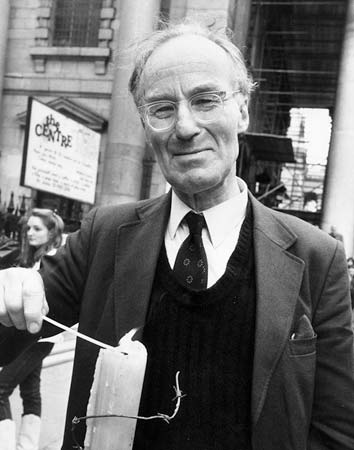
Amnesty International founder Peter Benenson lights a candle -- the symbol of Amnesty. ("It is better to light a candle than to curse the darkness" -- Chinese proverb)
The students were variously said to be from either Lisbon or Coimbra, received sentences ranging from two to seven years, were either two males or a male and a female, and were either arrested in a bar or in a restaurant.
It was, and remains a powerful and appealing story. Amnesty meetings at both the national and international level frequently end with the delegates taking part in a ceremonial 'toast to freedom' in their honour. In general, no one appears to have questioned the almost universal belief in this, our 'creation story' or doubted its factual or historical truth or accuracy.
However, an experience I had nearly 25 years ago, and recent research I conducted for a short film on Peter Benenson's 'epiphany' moment has contributed to my pursuing further details of this fascinating part of Amnesty's founding.
In 1988, as a young member of Amnesty's International Executive Committee, I visited Lisbon and met with members of Portugal's newly formed national Amnesty Section.
By that time enquiries had been made with our Portuguese colleagues seeking their help in tracing the identity of the two students whose dreadful experience had inspired Benenson to write his inspirational article.
In the company of Amnesty members and former political prisoners I visited the headquarters of the former PIDE (Dictator Antonio Salazar's notorious secret police) in Lisbon. The police files on former political prisoners and suspected leftists had just been made available for inspection. It was a very moving visit as those present for the first time got to see their own files, and those relating to friends and colleagues. Several broke down in tears. But no light was shed on the identity of the two students who Benenson recalled having been arrested for their toast to freedom.
The search for the two students resumed in 1999 when Amnesty's International Council Meeting was held for the first time in Lisbon.
Research for a documentary film by the Dutch Section of Amnesty suggested that a former political prisoner by the name of Ivone Dias Lourenço, daughter of a famous Portuguese communist leader, António Dias Lourenço, might have been one of the two students. However, she denied that she could have been one of those students as she was already in prison in late 1960 at the time that Peter Benenson said he read the newspaper article. She also made clear that her imprisonment was related to her activism as a member of the Portuguese Communist Party and not because of a 'toast to freedom'.
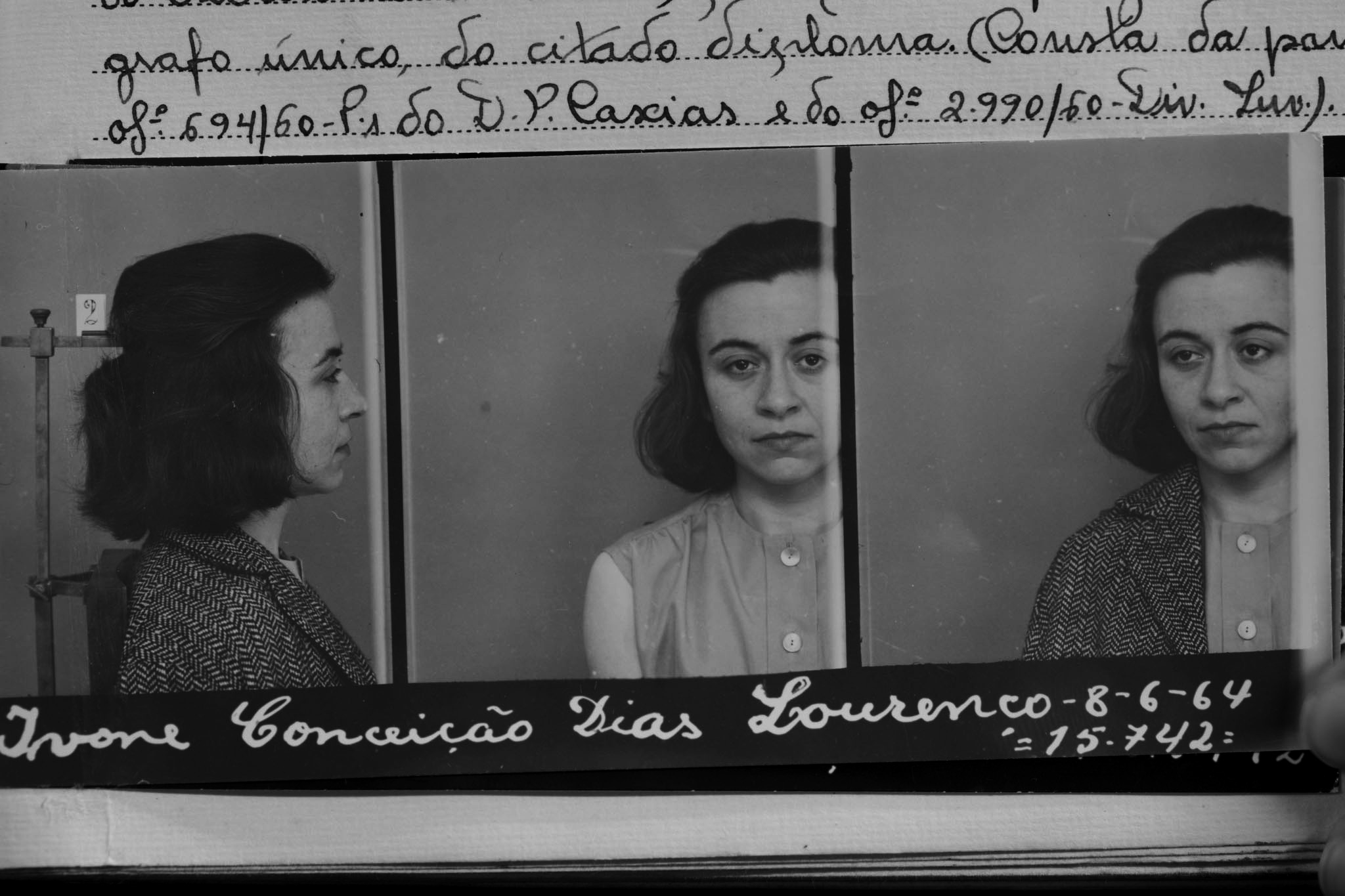
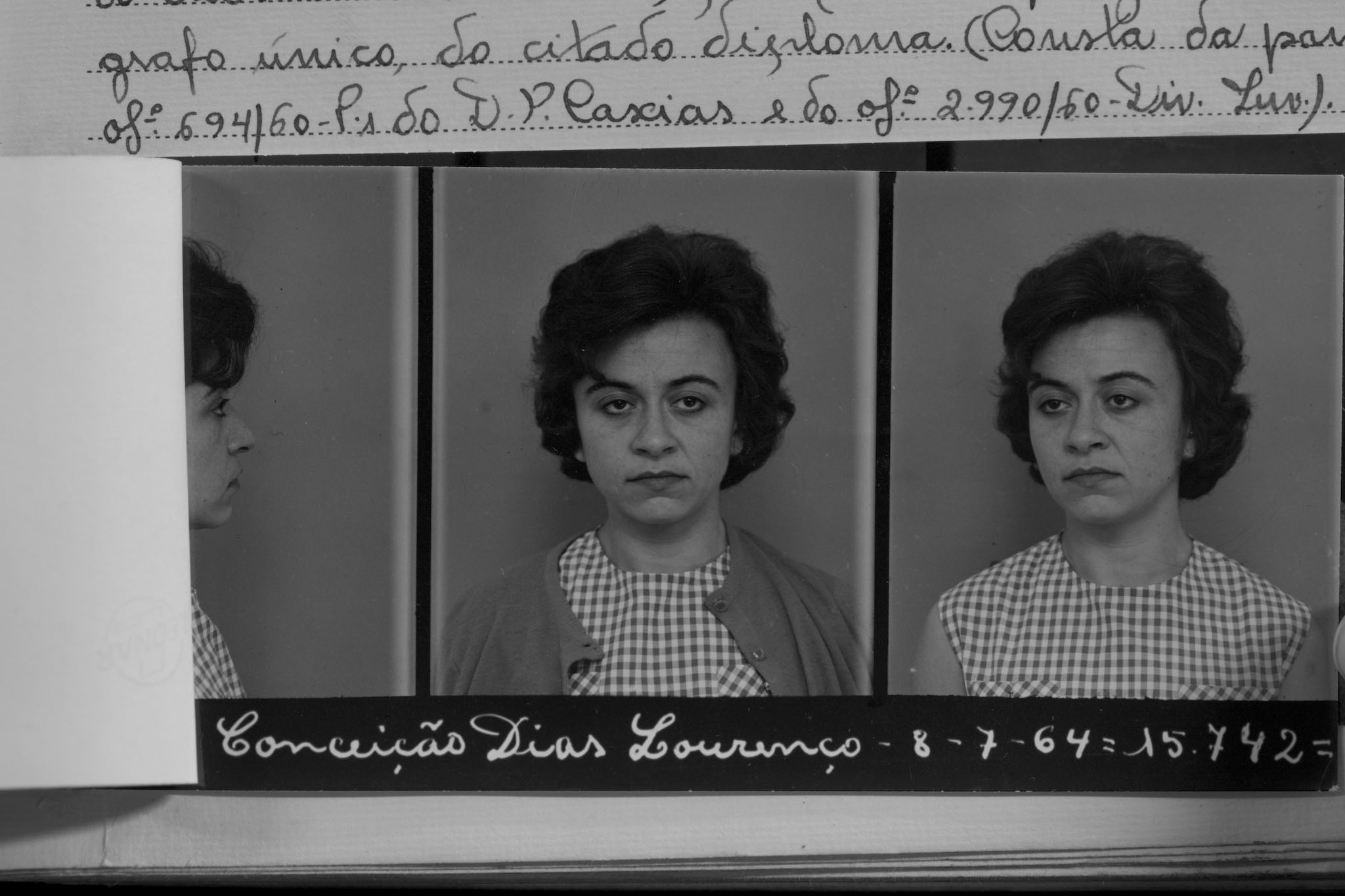
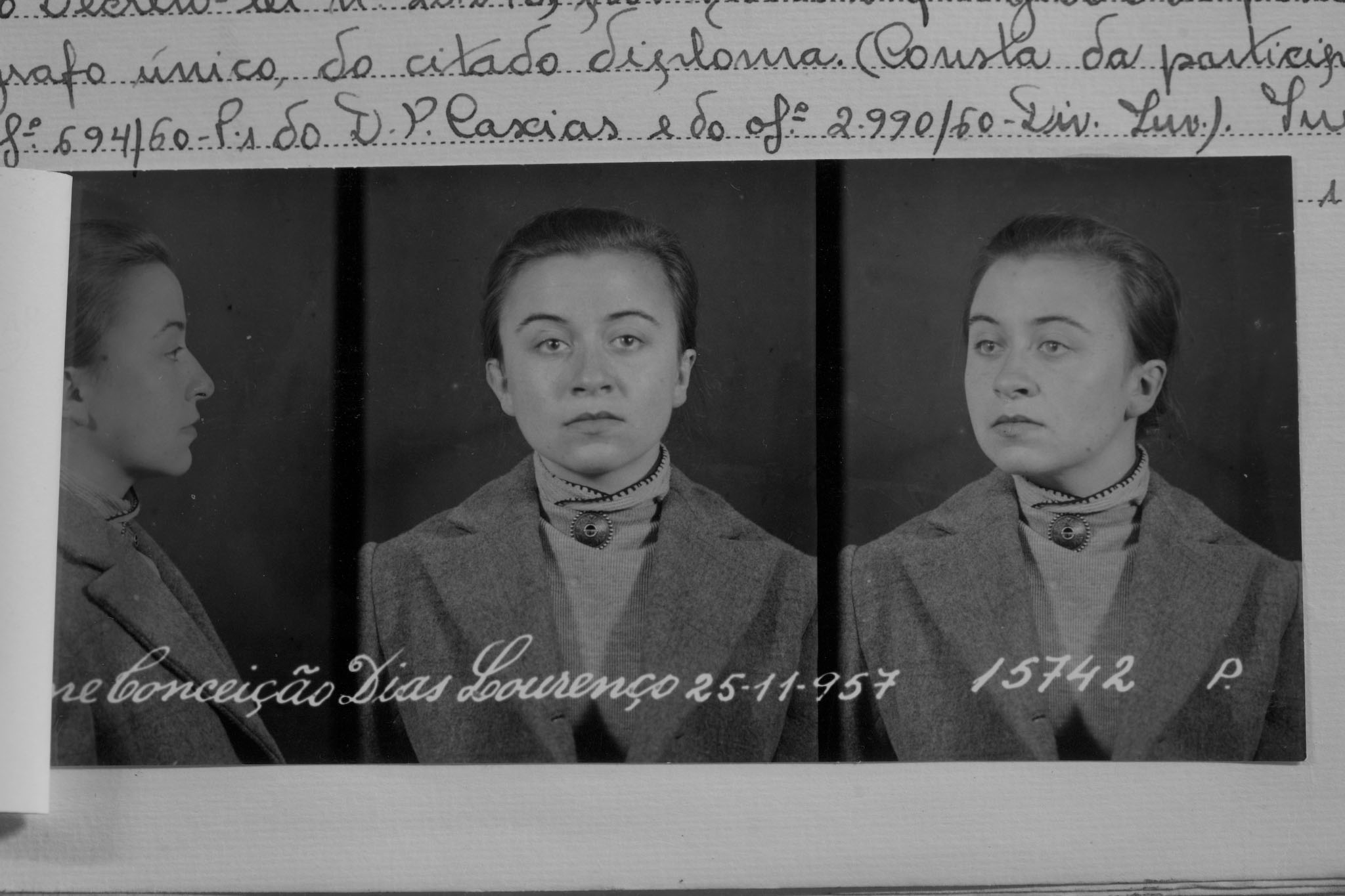 Official prison photographs of Portuguese political prisoner Ivone Dias Lourenço taken over the years of her long imprisonmentPhotographs: Reproduction of PIDE archives by Joao Pina
Official prison photographs of Portuguese political prisoner Ivone Dias Lourenço taken over the years of her long imprisonmentPhotographs: Reproduction of PIDE archives by Joao Pina
The trail again went cold. But the potency of the 'toast to freedom' story remained strong and undiminished.
The first major piece of independent historical research into the founding of Amnesty was carried out by Oxford University historian Tom Buchanan in 2002. This resulted in a thorough and well-researched article entitled The Truth Will Set You Free: The Making of Amnesty International, which appeared in the Journal of Contemporary History.
From Buchanan's research, based on materials in the Amnesty archives and other contemporary source materials including British newspaper and media archives, it seems clear that the origin of the 'toast to freedom' story came from a written testimonial in November 1983 by Benenson in preparation for interviews conducted by two Amnesty USA members.
Andrew Blane and Elizabeth Ellsworth conducted an extensive oral history project between 1983 and 1984 in which they interviewed sixteen of the founding members of Amnesty International including Peter Benenson, Sean MacBride (Chair of Amnesty from 1962-1974), and David Astor (the former editor of The Observer newspaper that had published the "Forgotten Prisoners" article.)
The taped interviews with Benenson took place over a number of months. In his written testimonial for the interviews Benenson wrote:
"Although I was no longer at the Bar I would go down to Chambers each day to lend a hand with the work of 'Justice'. It was on the 19th November 1960 as I was reading in the Tube -- rather uncharacteristically The Daily Telegraph -- that I came on a short paragraph that related how two Portuguese students had been sentenced to terms of imprisonment for no other offence than having drunk a toast to liberty in a Lisbon restaurant. Perhaps because I am particularly attached to liberty, perhaps because I am fond of wine this news-item produced a righteous indignation in me that transcended normal bounds.""At Trafalgar Square station I got out of the train and went straight into the Church of St Martin's-in-the-Fields [sic]. There I sat and pondered on the situation. I felt like marching down to the Portuguese Embassy to make an immediate protest, but what would have been the use? Walking up the Strand towards the Temple my mind dwelt on World Refugee Year, the first of these years dedicated to international action. What a success it had been! The DP [Displaced Persons] camps in Europe had been finally emptied. Could not the same thing be done for the inmates of concentration camps, I speculated? What about a World Year against political imprisonment?"
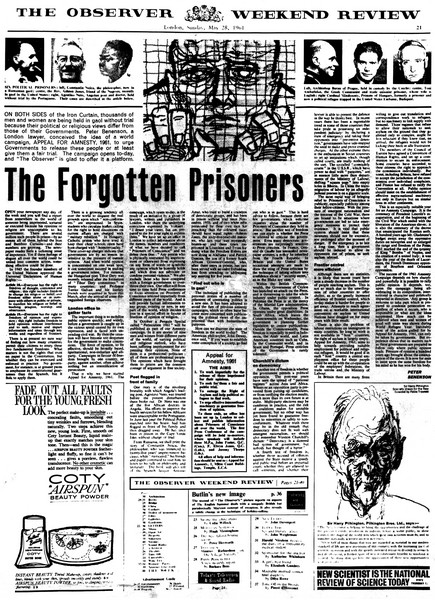
The op-ed article "Forgotten Prisoners" written by Amnesty founder Peter Benenson and published in the British Sunday newspaper The Observer on May 28th 1961. It called for a one-year campaign of amnesty for political prisoners. After that year the campaign evolved into what has become a worldwide, Nobel Peace Prize-winning movement with over three million supporters. Amnesty International is now marking its 50th anniversary fighting for human rights.
During the Blane and Ellsworth interviews Benenson was not questioned further about the two students or the newspaper article and there was no separate checking of the facts against other materials.
When Buchanan came to conduct his research in 2002 he checked what Benenson wrote and said in 1983 against what he had said in earlier years. In particular he sourced a BBC radio interview broadcast on 4th March 1962 in which Benenson cited the date of his tube journey as 19th December 1960 (as distinct from 19th NOVEMBER in his later recollection) and commented that:
"The only evidence against them was that over the dinner table they'd conspired to overthrow the government. I thought then 'what a crazy world this is, when two friends can't have dinner together without being arrested.'"
In Amnesty's first annual report, for 1961-62, Chairman Lionel Elvin wrote that Benenson had "recalled how one morning, travelling in the tube to work, he read about two Portuguese friends dining in a restaurant in Lisbon. A remark that they passed that was critical of the Portuguese government was overheard, and the next thing was that they were arrested and imprisoned for treason against the Government." But at no point were these students' names -- nor their eventual fate -- publicized by Amnesty, and they were not among the six prisoners chosen for publicity when the 'Forgotten Prisoners' appeal was launched. Nor was there any reference to a 'toast to freedom' in the Observer article, the March 1962 BBC Radio interview or the Amnesty 1961-1962 report.
Tom Buchanan trawled the archives of The Daily Telegraph for the months of November and December 1960 but could find no reference to imprisoned Portuguese students or any reference to a 'toast to freedom'.
In addressing the contradictory dates offered by Benenson (19th December 1960 in his 1962 radio interview and 19th November 1960 in his 1983 interview) -- the first recollection is more plausible; not least because it was recounted just 15 months after the events described. Additionally, the 19th of November in 1960 was a Saturday -- a day of the week on which an inactive barrister would be unlikely to be visiting his Chambers at the Temple. By contrast 19th December that year was a Monday.
Buchanan discovered that, unlike The Daily Telegraph, The Times for this same period contained numerous news items concerning political imprisonment in Portugal including a report on the 19th December 1960 about a man and a woman jailed for six and two years respectively for engaging in 'subversive activities' and 'crimes against the security of the state from 1953 to 1956'. The woman mentioned in the article was a Portuguese communist, Ivone Dias Lourenço.
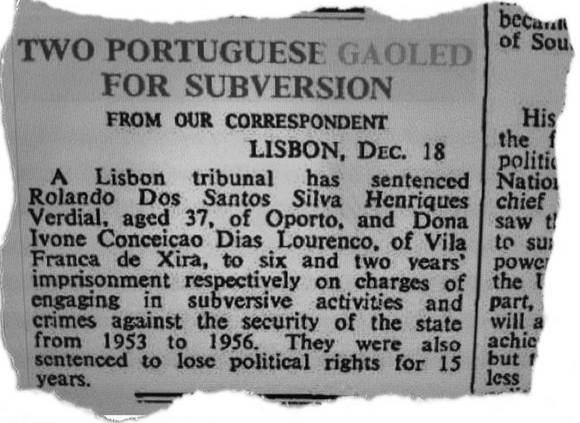
Extract from The Times (UK) Monday 19th December 1960
Benenson passed away in 2005, aged 83, so sadly we are not now able to ask for his help in shining light on the 'toast to freedom' story. But based upon the available evidence I think it is probable that he saw and read the short piece in The Times newspaper on Monday 19th December, 1960. It is the date he recalled in March 1962 when he was interviewed by BBC Radio and it mentions two Portuguese convicted for unspecified 'subversive activities'.
It is known that he was already thinking deeply about the plight of political prisoners and I believe that as a result of The Times news story he experienced what Tom Buchanan describes as "some form of 'revelation' that allowed the various ideas and insights that had been fermenting in his mind to be brought more sharply into focus, making possible the remarkable unleashing of energy and imagination" that lead to the founding of Amnesty.
It doesn't take much imagination to see how the essence of this short Times news story, lacking in detail as to the specifics of the 'subversive activities', could have evolved in Peter Benenson's memory over the 23 years between its publication and his recollection of it.
Regardless of the precise details of the epiphany that inspired him, nothing takes away from the colossal achievement of Benenson, the other founding fathers and mothers of Amnesty and their world-changing triumph in harnessing the response to Benenson's "Forgotten Prisoners" article and subsequently creating the great human rights movement that is Amnesty International.
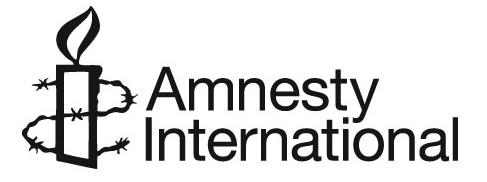
For this reason I believe that we Amnesty members should continue to raise our glasses in a salute. Not for the lost or apocryphal students, but for Peter Benenson, for his remarkable vision, for his inspirational call to action and for instigating the worldwide movement that has truly changed our planet. The world is a far better place as a result of his efforts. And that's a massive contribution to freedom worth toasting...
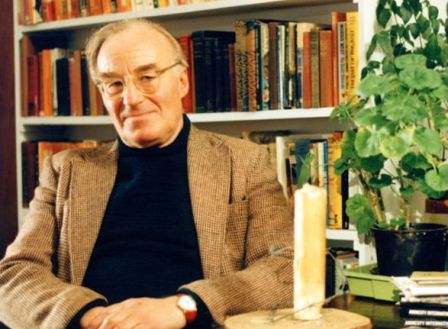
"Only when the last prisoner of conscience has been freed, when the last torture chamber has been closed, when the United Nations Declaration of Human Rights is a reality for the world's people, will our work be done." -- Peter Benenson [1921-2005] -- Founder of Amnesty International
Bill Shipsey is the founder of Art For Amnesty - a global project that engages artists and entertainers with the Nobel Peace Prize-winning human rights organization Amnesty International. He also started Amnesty's Ambassador of Conscience Award - an accolade that has been bestowed on such diverse activists as Nelson Mandela, Václav Havel, Aung San Suu Kyi, Peter Gabriel and U2. He was Co-Executive Producer of "Instant Karma" - Amnesty's multi-star benefit album of John Lennon compositions. Shipsey first joined Amnesty in 1977 - inspired in part by the activism of entertainers who performed at the "Secret Policeman's Ball" benefit shows created for Amnesty by Monty Python's John Cleese and producer/activist Martin Lewis.